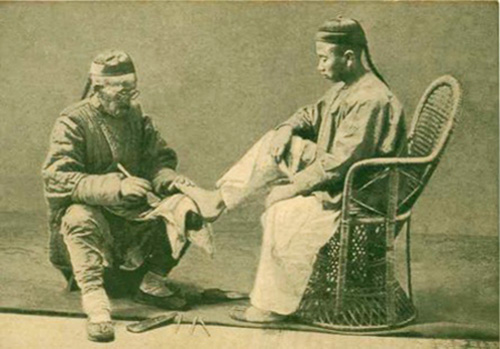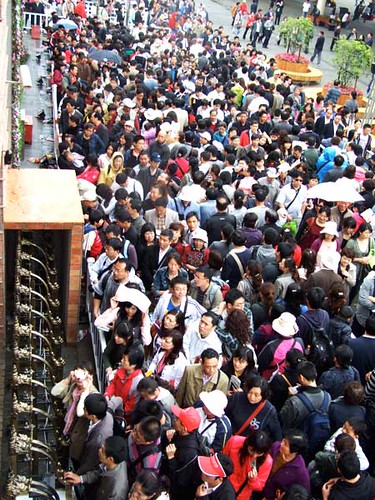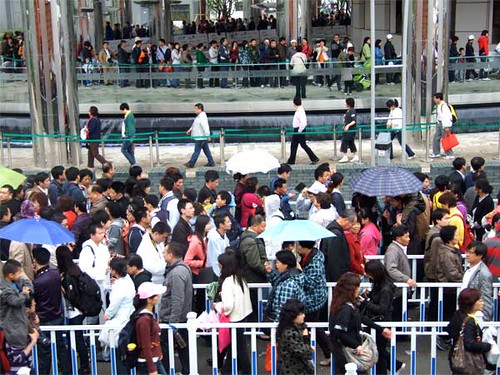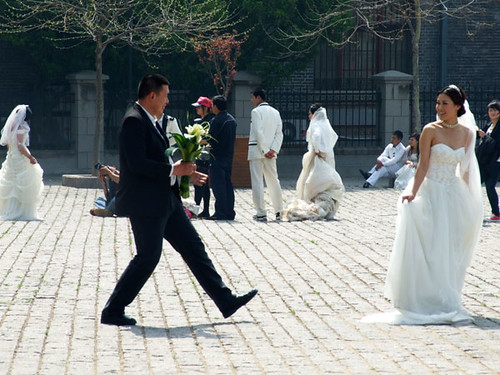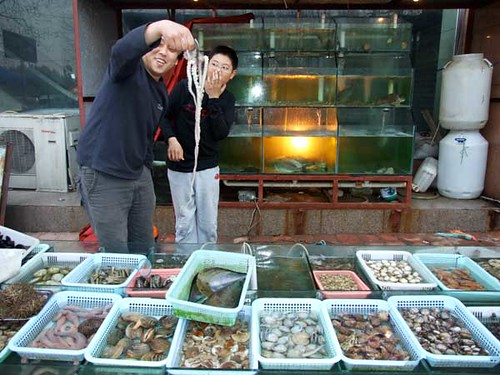Last summer, on a train in California, I eavesdropped shamelessly on the Chinese conversation of some summer students in my carriage. Waiting for the ripe moment to reveal I could understand them – which is as fun as it is smug – I struck up a friendship with one of the girls, Wu Yi-jung å³å®œè“‰*. (Who kindly let me publish her summer research project on stereotypes of Asians in the US.)
Shortly after the Chinese new year, I got an email from Yi-jung saying she was in Beijing for five months, on an exchange program from her university in Tainan – taking psychology classes at Beida (Peking University). This was her first trip to Beijing, and my curiosity was instantly piqued: what were her first impressions? What were her expectations before? How did Beida students react to her? And her reactions in turn?
We met up, then and over the following months, and I bugged Yi-jung with these questions and more. She also pointed me towards her facebook profile, where she had been posting notes from Beijing (using a VPN – facebook is blocked in mainland China, unlike in Taiwan). I’ll be translating three of four of these notes and posting them here – starting with one right away. But as a preface, here are a few of Yi-jung’s impressions of the city which emerged during our conversations. I resisted schoolboy bullet points.
First up: Beijing’s so cold! (This in early March; I’ll back her up here.) And her second impression? Taking a shower in Beida isn’t like back home in Taiwan. “Many student dorms in Beida don’t have a shower, students have to use communal shower rooms, and there’s one shower tap. When I found out that everyone showers together in this way, I was so surprised, there’s no right to privacy (éšç§æƒ).”
What about the food, then? “Much too oily.” The second time we met, Yi-jung had just had a Subway sandwich for dinner (Beida has a joint on campus).
How about reactions from Beida students, when they hear where she’s from? One of the first, she tells me is: “Oh, you’re from Taiwan? You speak Mandarin really well!”** After this, most people ask about the pop stars and chat shows Taiwan is famous for. But sooner or later (especially over meals, for some reason), many get onto politics. Here, the phrase she hears most is “Taiwan is part of China”, offered as a sound-bite, often without prelude or context. Yi-jung couldn’t agree less, but she never rises to the bait.
But what I found most interesting was how Yi-jung’s reactions changed two months later. In March, shortly after her arrival, she considered Taiwanese students like her completely unlike their Beida counterparts – for all of the reasons above, and more. Now, the food is still oily, the students still nationalistic – but Yi-jung has become “æ— æ‰€è°“”. That’s an essential phrase to know in China, equivalent to “I couldn’t care less”.
In California, Yi-jung had had a culture shock too: after a month there, she told me, it became clear to her that American students weren’t anything like her or her friends. But here in Beijing, she’s realised that the differences she’d complained of between herself and young mainland Chinese were quibbles. “Now I think they are just like me”.
The first of Yi-jung’s facebook notes is up, here. The second, here. Third, too.
Next, this is what happened when Yi-jung met Marie, and here is my other Taiwanese friend’s two cents.
___
* that third character doesn’t sound like the English because it’s the Wade-Giles system of romanisation, still used on Taiwan. In pinyin, her name would read ‘Wu Yirong’.
** standard Mandarin or putonghua is spoken in Taiwan with a heavy accent. As it is in pretty much every mainland province, of course … so this is seriously patronising.

